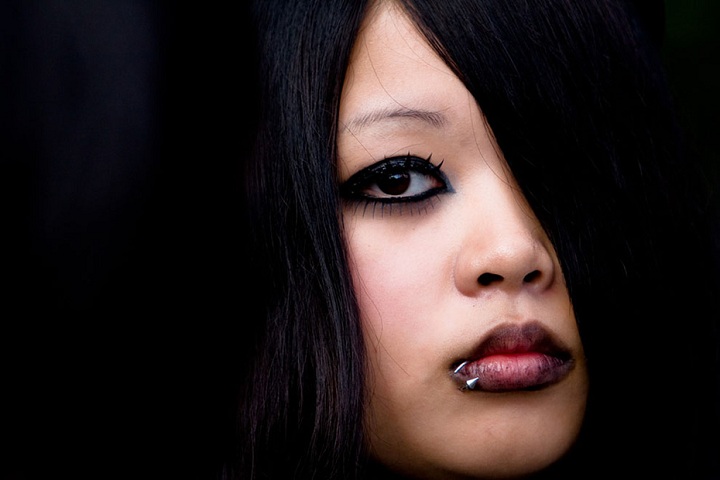 Japan is
a place where everyone is individual – but in groups. If you go to the park on
a certain hour every Saturday, you’ll see hundreds of boys dressed as rock and
rollers, dancing to rock and roll music… very seriously.So it’s no surprise
that when girls want to display groundbreaking fashions that no-one has ever
seen before, they want to do it in the same place, at the same time. And that
place is the Harajuku district in Tokyo.
Japan is
a place where everyone is individual – but in groups. If you go to the park on
a certain hour every Saturday, you’ll see hundreds of boys dressed as rock and
rollers, dancing to rock and roll music… very seriously.So it’s no surprise
that when girls want to display groundbreaking fashions that no-one has ever
seen before, they want to do it in the same place, at the same time. And that
place is the Harajuku district in Tokyo.
The term “Harajuku Girls” has been used by English-language media to describe teenagers dressed in any fashion style who are in the area of Harajuku. This fashion infuses multiple looks and styles to create a unique form of dress. One of these styles, Kawaii, came to fame in the 1990s. Kawaii became a popular phrase that meant something was cute or pretty. Kawaii was a form of resistance in that the style and culture associated with it were not seen as attractive by an older generation. This idea of Kawaii was a distinct youth culture separate from the traditional one in existence.The cyber-punk look takes its influence from gothic fashion and incorporates neon and metallic colors.However, it isn’t as popular as it was in the 1990s.
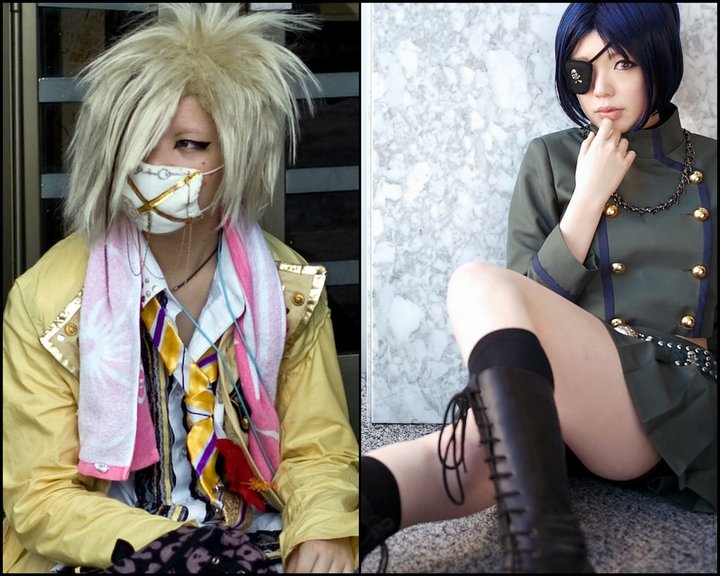

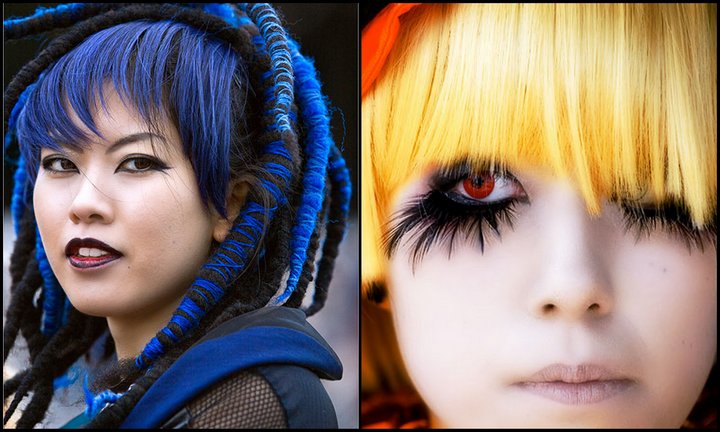
Harajuku fashion’s origin
Harajuku fashion gets its name from the Harajuku district of Tokyo. All the switched-on harajuku kids go there to explore the many clothes shops and gather Yoyogi park, the cafes in Omotesando street or on the way to the Meiji shrine to display their latest harajuku creations for tourists as well as for their friends.Harajuku became famous in the 1980s due to the street performers and wildly-dressed teens who gathered there on Sundays when Omotesando was closed to traffic. Omotesando is a very long street with cafes and upscale fashion boutiques popular with residents and tourists alike. Once it became pedestrianised on sundays it was the perfect place to meet, play music and show off!
Having a regular meeting place for art, conversation and performance gave rise to the vibrant Hokoten band scene. This was stopped at the end of the 1990s and the number of performers, Visual Kei fans,
rockabilly dancers and punks has steadily decreased since. Today on Sundays one can see many Gothic Lolita as well as many foreign tourists taking pictures of them on the way to Meiji Shrine. Some tourists are surprised to see such a large exhibition of Japanese youth dressed up in often shocking outfits.

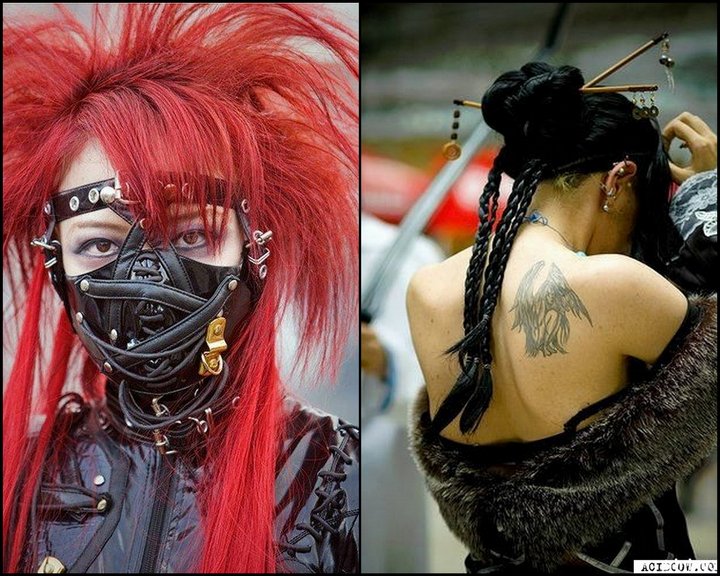
Harajuku fashion is about freedom of expression
Japan is still very good at consuming
trends from the West, so if you walk down the boutiques of Takeshita
street in Harajuku you’ll probably see a lot of teenagers wearing mod
clothes. Harajuku is a mecca for artists, independent spirits, and
burgeoning fashion trends that provides a space of free expression in
what is ordinarily a rather conservative Japanese culture. But Japanese
fashion isn’t afraid to take it one step further… dressing-up in costume
is seen as a major element of fashions, so no-one will bat an eyelid at
a pretty girl wearing a plastic fried egg round her neck as a fashion
statement.
The nice thing about Japanese – and
Harajuku fashion – is that it’s not a case of shops and brands (like
Gap) dictating what people wear, but teenagers dictating what the shops
will start selling.
There are now many clothes and websites
that sell harajuku fashion and lolita fashion, but the spirit of this
japanese style has arisen from teenagers not being afraid to customise
and accessorise their own clothes, and to wear crazy outfits with a
sense of humour to retaliate against social expectations of straight
clothes, straight jobs, straight attitudes.
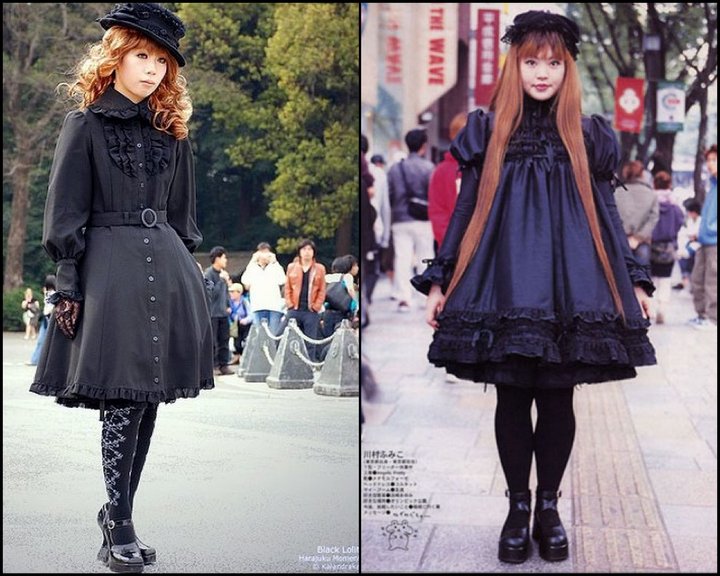
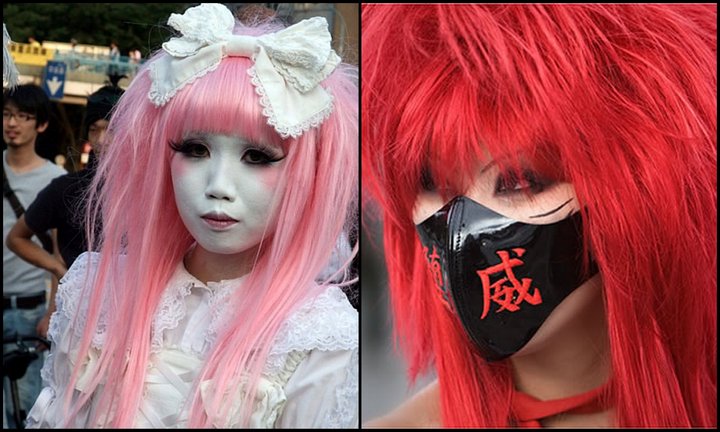
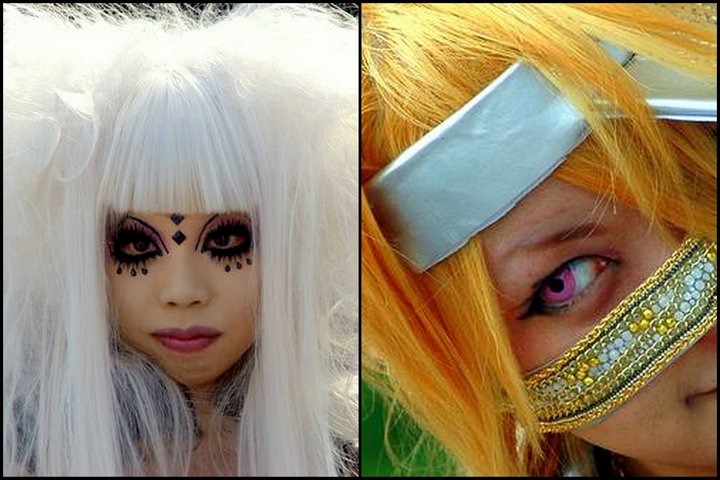
How to wear Harajuku Style
- Harajuku fashion is creative…
- And theatrical.
- Mix and match – harajuku style is about visually and mentally refreshing contrasts
- Look cute
- Never forget – harajuku fashion has a sense of humour!
- Be confident wearing clothes that mix genres and influences
- Be confident wearing clothes that have weird shapes and geometric structures
- If you go for bright colours, make sure you have unusual, fun contrasts
- If you wear make-up, wear it black
- Be confident in your chosen look – end of.
- Above all, be stylish!
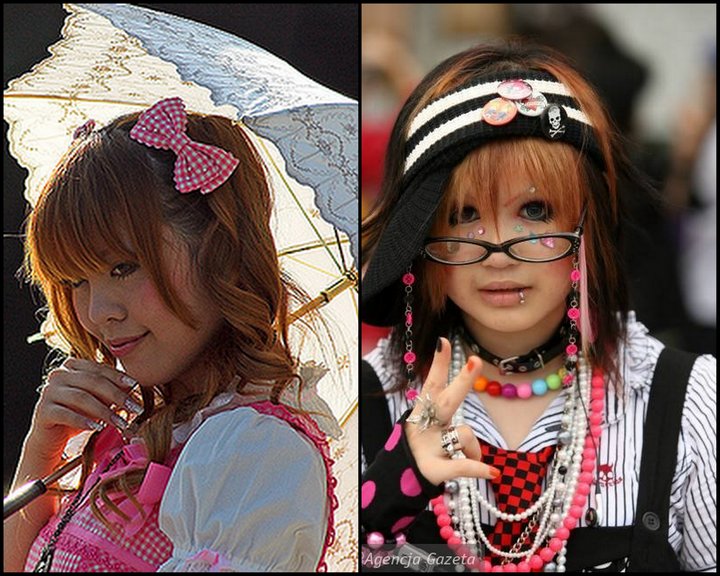
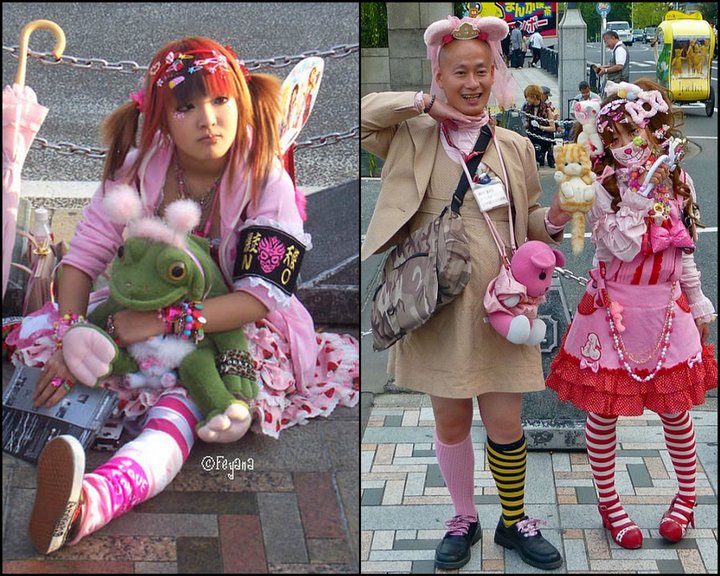
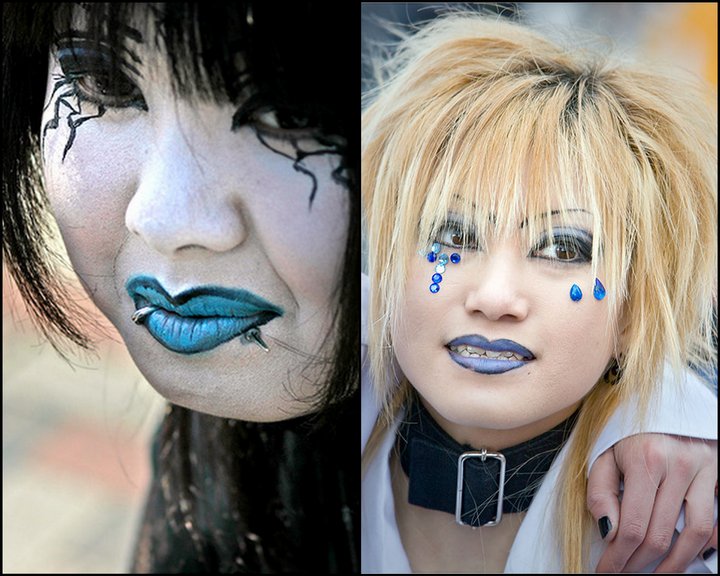
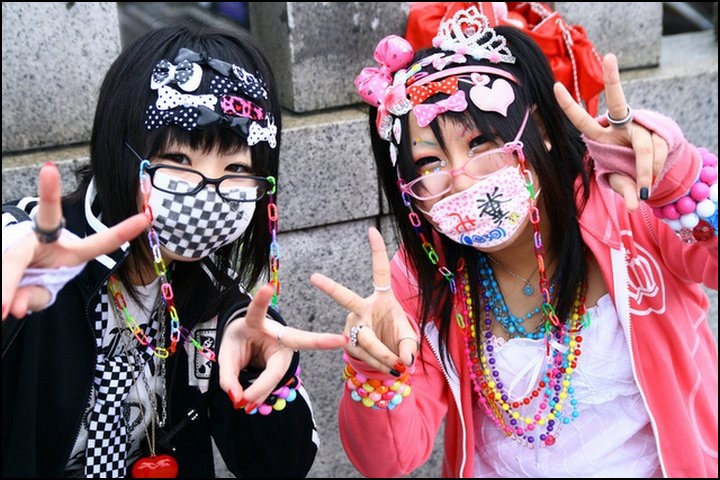
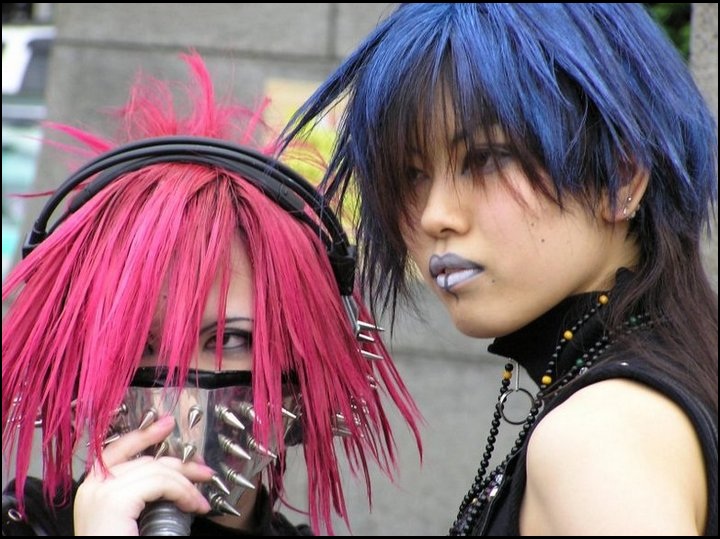
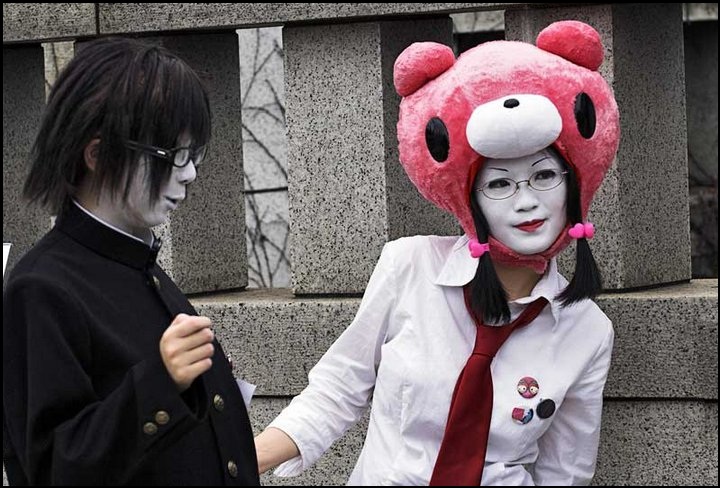
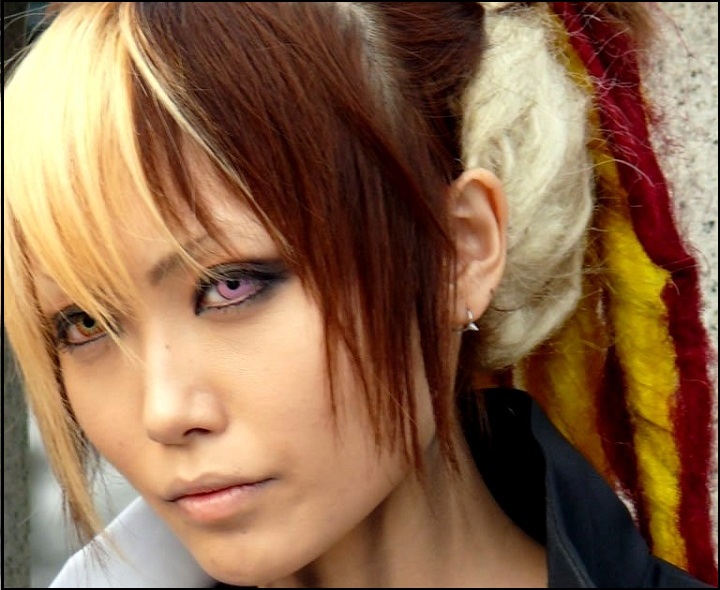
No comments:
Post a Comment